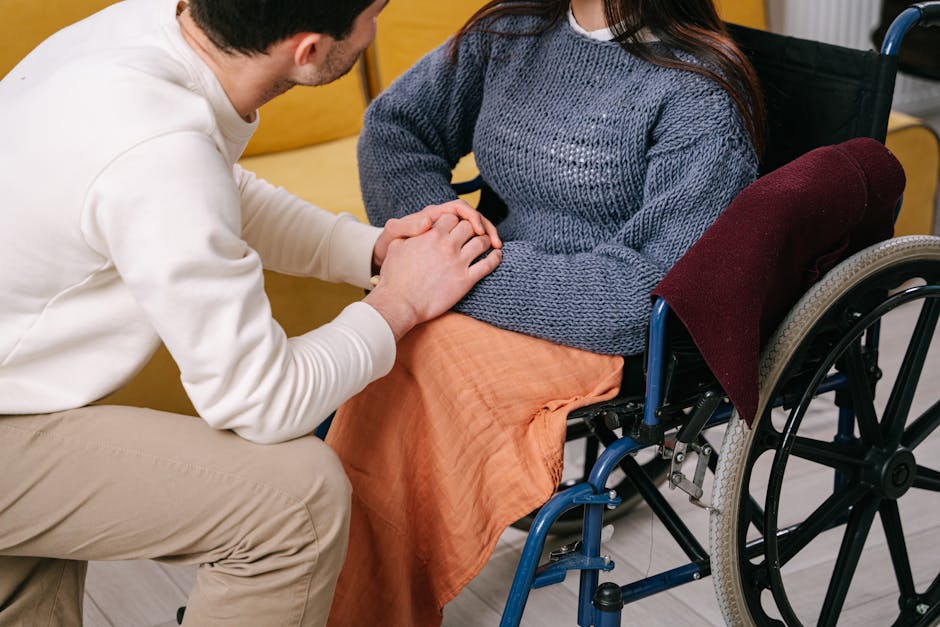Understanding Assistive Technology
Assistive Technology solutions are tools or modifications that help individuals with disabilities live more independently. These solutions can range from simple gadgets to more complex home modifications. Some examples include grab bars, shower chairs, ramps, adaptive utensils, and smart home technology. By incorporating these solutions into daily life, individuals with disabilities can gain more control over their environment and perform everyday tasks with greater ease.
Importance of Independence for Individuals with Disabilities
Independence is crucial for individuals with disabilities as it promotes self-esteem and autonomy. It allows individuals to make choices and decisions based on their own preferences and needs. By enhancing independence, individuals with disabilities can lead more fulfilling and empowered lives. Here are a few reasons why independence is important:
- Independence fosters a sense of pride and accomplishment
- It enables individuals to overcome challenges and build resilience
- Independence promotes self-reliance and reduces dependence on others
- It enhances overall well-being and quality of life.
Types of Assistive Technology Solutions
Assistive Technology solutions can include home modifications, assistive technology, personal care aids, mobility devices, and communication tools. Home modifications such as ramps and grab bars help individuals move around their homes more easily. Assistive technology like voice-controlled devices or apps can assist with daily tasks. Personal care aids like specialised utensils or adaptive clothing can make self-care tasks simpler. Mobility devices such as wheelchairs or walkers offer increased independence in movement. Communication tools like speech-generating devices help individuals express themselves effectively.
How Assistive Technology Enhance Independence
Assistive Technology enhances independence by providing tools and strategies to help individuals with disabilities perform daily tasks on their own. These solutions are designed to make living spaces and activities more accessible and manageable for those with specific needs. Some benefits of adaptive living solutions include promoting self-reliance, improving quality of life, increasing confidence, boosting morale, and fostering a sense of empowerment.
Navigating Assistive Technology
Assistive Technology (AT) can be new and challenging to use at first. These solutions are practical tools designed to help individuals with disabilities live more independently, but the initial learning curve can be steep. An Occupational Therapist (OT) can be invaluable in this process, helping you understand and navigate these technologies. By working with an OT, you can learn how to effectively use AT to perform daily tasks with greater ease and efficiency, ultimately enhancing your independence and quality of life.
Adapting the Home Environment
Making the home environment more accessible can greatly enhance the independence of individuals with disabilities. Here are some ways to adapt your living space to better suit their needs:
- Install grab bars in the bathroom for added safety.
- Ensure that pathways are clear and wide enough for easy navigation.
- Consider adding ramps or stairlifts to provide easier access to different levels of the home.
- Implement smart home technology for greater convenience.
- Customise furniture and fixtures to be more ergonomic and user-friendly.
By making these adaptations, individuals with disabilities can navigate their living environment with greater ease and independence.
Assistive Technology for Increased Independence
Assistive technology plays a crucial role in enhancing independence for individuals with disabilities. Here are some key points to consider:
- Assistive technology helps individuals with disabilities perform daily tasks, such as communication, mobility, and self-care, more independently.
- Devices like wheelchairs, hearing aids, and communication aids are examples of assistive technology that can make a significant impact on a person’s quality of life.
- Customized solutions can be tailored to meet specific needs and preferences, empowering individuals to navigate the world with more ease and confidence.
Investing in the right assistive technology can truly make a difference in promoting independence and improving overall well-being for individuals with disabilities.
Promoting Social Inclusion and Community Participation
Social inclusion and community participation are essential for individuals with disabilities to feel connected and valued. By promoting these, we can help enhance their quality of life and ensure they are not isolated. Providing opportunities for interactions with others and engaging in community activities can boost their confidence and sense of belonging. This can lead to a more fulfilling and independent life for individuals with disabilities.
Support Systems for Individuals with Disabilities
Support systems for individuals with disabilities play a crucial role in enhancing independence. Here are some key ways these support systems can help:
- Access to assistive technology and devices can significantly improve daily living tasks.
- Community-based programs offer social connections and emotional support.
- Vocational rehabilitation services assist in finding suitable employment opportunities.
- Housing assistance ensures living arrangements are conducive to individual needs.
- Personal care attendants provide necessary help with daily activities, fostering independence.
Conclusion: Empowering Independence through Assistive Technology (AT)
Assistive Technology can significantly improve independence for individuals with disabilities. These solutions encompass a variety of tools and modifications that cater to specific needs. By implementing these solutions, individuals can enhance their quality of life and promote independence in their daily activities. Remember, empowering individuals with the right adaptive living solutions can make a substantial difference in their overall well-being and autonomy.
See more posts on NDIS Community

